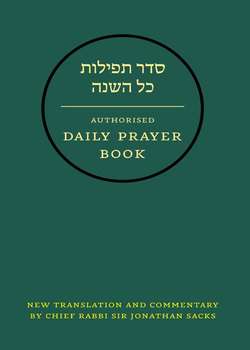Читать книгу Hebrew Daily Prayer Book - Jonathan Sacks - Страница 23
8. PRAYER AND FAITH
ОглавлениеTHE SIDDUR IS ALSO THE BOOK OF Jewish faith. Scholars of Judaism, noting that it contains little systematic theology, have sometimes concluded that it is a religion of deeds not creeds, acts not beliefs. They were wrong because they were searching in the wrong place. They were looking for a library of works like Moses Maimonides’ Guide for the Perplexed. They should have looked instead at the prayer book. The home of Jewish belief is the Siddur.
At several points, the prayers have been shaped in response to theological controversy. The opening statement in the morning service after Bar’chu, “who forms light and creates darkness, makes peace and creates all”, is a protest against dualism, which had a considerable following in the first centuries CE in the form of Gnosticism and Manichaeism. Its presence can be traced in the ancient documents discovered in the 1940s, the Dead Sea Scrolls and the Nag Hammadi codices. Against dualism, with its vision of perpetual cosmic struggle, Judaism insists that all reality derives from a single source.
The second paragraph of the Amidah, with its fivefold reference to the resurrection of the dead, reflects the ancient controversy between the Pharisees and Sadducees. The morning prayer, “My GOD, the soul You placed in me is pure” (page 16), may be directed against the Pauline doctrine of original sin. The Mishnah chapter, “With what wicks may we light?” (page 298), was probably inserted as part of the polemic against the Karaite sect. The Ten Commandments, said daily as part of the Temple service immediately after the Shema, was removed from the prayers when it was used by sectarians to argue that only these ten commandments were commanded by GOD.
The fact that Jewish faith was written into the prayers, rather than analysed in works of theology, is of immense significance. We do not analyse our faith: we pray it. We do not philosophise about truth: we sing it. Even Maimonides’ Thirteen Principles of Jewish faith – the most famous creed in the history of Judaism -only entered the mainstream of Jewish consciousness when they were turned into a song and included in the Siddur as the hymn known as Yigdal. For Judaism, theology becomes real when it becomes prayer. We do not talk about GOD. We talk to GOD.
I have known many atheists. My doctoral supervisor, the late Sir Bernard Williams, described as the most brilliant mind in Britain, was one. He was a good, caring, deeply moral human being, but he could not understand my faith at all. For him, life was ultimately tragic. The universe was blind to our presence, deaf to our prayers, indifferent to our hopes. There is no meaning beyond that which human beings construct for themselves. We are dust on the surface of infinity.
I understood that vision, yet in the end I could not share his belief that it is somehow more honest to despair than to trust, to see existence as an accident rather than as invested with a meaning we strive to discover. Sir Bernard loved ancient Greece; I loved biblical Israel. Greece gave the world tragedy; Israel taught it hope. A people, a person, who can pray is one who, even in the darkest night of the soul, can never ultimately lose hope.
